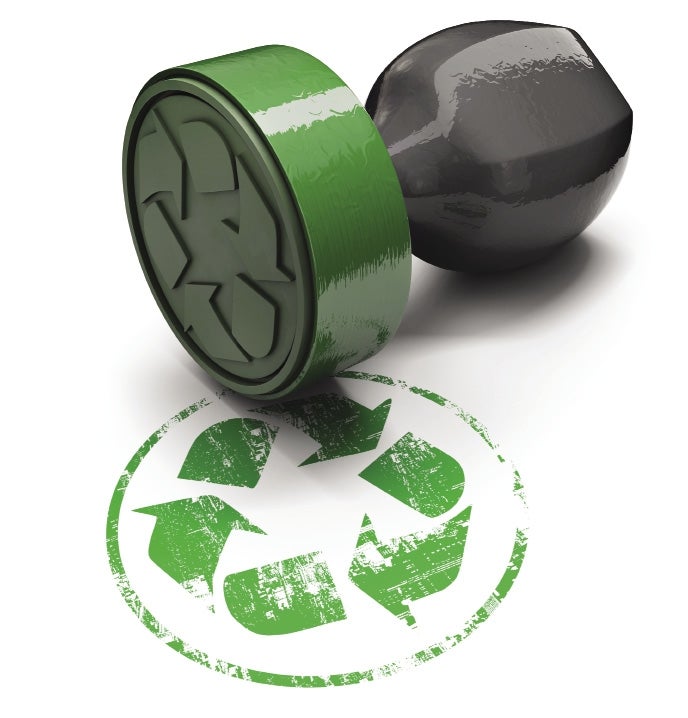When the SpringHill Suites in Devens was looking to replace nearly 200 mattresses in its guestrooms late last year, hotel management knew it would cost money to dispose of the old mattresses, which would likely end up in a landfill
But in an age where geographic proximity and commercial neighbors seems to matter less in many places, the community of Devens stands out. The state-owned enterprise zone — which is made up of pieces of Shirley, Ayer and Harvard — has a unique program that helped the SpringHill Suites reach a different outcome.
The Devens Eco-Efficiency Center connected the hotel with an Acton-based nonprofit that provides gently used furniture and other household goods to people in need.
The transaction seemed simple, but Maura Peeler, area general manager with hotel owner True North Hotel Group, said the eco-efficiency center made all the difference. She called the center “a huge value add.”
“I’ve worked in several markets throughout the country and I have not encountered this type of organization focused on sustainable efforts,” Peeler said. “They’re able to provide us with a lot more resources and make things happen.”
The center grew out of a smaller program created in 2005, and was granted 501(c)(3) nonprofit status in 2008. It operates mainly on grants, but also takes in member fees. The center is in many ways intertwined with the Devens Enterprise Commission (DEC), which is the permit-granting authority for Devens. The DEC provides office space for the center, and Peter Lowitt, land use administrator for the DEC, is the president of the nonprofit’s board of directors. And the DEC supports a grant for the center in its annual budget.
Dona Neely, executive director of the center, said the connection to the DEC has been invaluable, particularly in spreading the word about the center’s work to new companies going through the permitting process.
“As they go through that process, Peter and his colleagues are very conscientious to introduce the incoming companies to me so they can learn about the eco-efficiency center,” Neely said. “It’s a great partnership.”
Lowitt said in an interview that the DEC’s mission tracks closely with the center’s. Devens is an eco-industrial park, which means the businesses within its borders work together to reduce waste and be more environmentally friendly. Devens’ re-use plan calls directly for sustainable redevelopment.
“Eco-industrial development and green infrastructure are ways we can make communities more resilient and capable of adapting,” Lowitt said. “Devens represents one of those great places you can see changes taking place rapidly.”
Making Connections
The center has helped businesses work through a variety of eco-friendly arrangements. It has helped other companies change out furniture and it also helped the Hilton Garden Inn (another True North property) start a composting program and helped one manufacturer research a switch to a more eco- friendly production process.
The center also helped Waiteco, a precision machine shop, solve a packaging problem.
Paulette Barrows, operations manager at the Saratoga Boulevard company, said Neely was able to match Waiteco up with Parker Hannifin Corp., which was disposing of various packing materials that arrived at its Devens location with its aircraft parts. Waiteco was paying for similar packaging to ship its own parts.
Now, Waiteco gets several large bags and bins of packing foam, bubble wrap and other material arrives every few weeks from Parker Hannifin, which is just up the road.
“It’s all clean, nice stuff,” Barrows said. “It’s great for the environment and it’s great for us because it’s a huge cost savings.”
Barrows said Waiteco appreciates the eco-efficiency program and said the support from the state is certainly noticed.
“It’s a great initiative,” she said.
Connecting neighbors is one of the core functions of the center, Neely said. Getting a group of Devens businesspeople in a room to talk about potential synergies is a good way to find them.
“Usually they don’t really know their neighbors,” she said. “Many times, we’ll discover opportunities to partner in other business ways.”
Tracking Its Progress
The eco-efficiency center has become a core part of Devens’ sustainability efforts, but the DEC, which in many ways acts as a local government, is hoping to ramp up other green efforts.
It’s been a dozen years since the commission first took stock of it’s the sustainable elements of the community
But the commission just released a report tracking its progress since then, and is pledging to issue the reports more often — every five years or so — moving forward.
In 2000, the commission identified 44 sustainability indicators — drawing from areas such as transportation, natural resources, public health and social sustainability — to track over the years ahead. And it identified lack of public transportation and lack of certified green buildings as major challenges.
Its latest report, released this month, found that it had made progress in 26 of those and potential progress in seven, while eight showed no progress and three lacked sufficient data to make a judgment.
Among the developments: A more than 50 percent increase in the number of companies that exist in the enterprise zone; twice as many miles of walking trails; and 10 percent of commuters now use alternate forms of transportation, up from 4 percent in 2000.
And the report noted major improvements in the two challenges identified 12 years ago: a $200 million investment in the Fitchburg line which has allowed for more reverse commuting, and a big increase in green-certified commercial buildings. Today, 14 percent of those buildings are certified green. There were none in 2000.
“If you parse it more, since 2008 we’re closer to 80 percent,” Lowitt said.
The commission’s goals moving forward are broad, but Lowitt said there is one specific project in mind — bike lanes.
The commission will track in future reports how many miles of bike lanes Devens has, which Lowitt hopes will draw attention to the matter.

